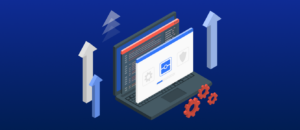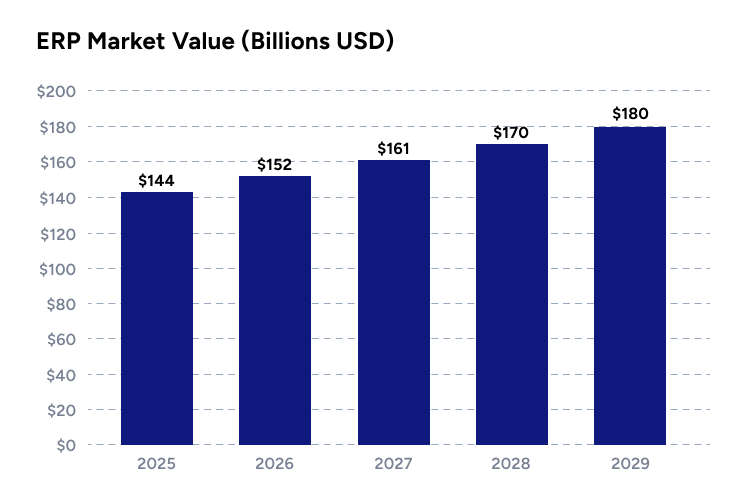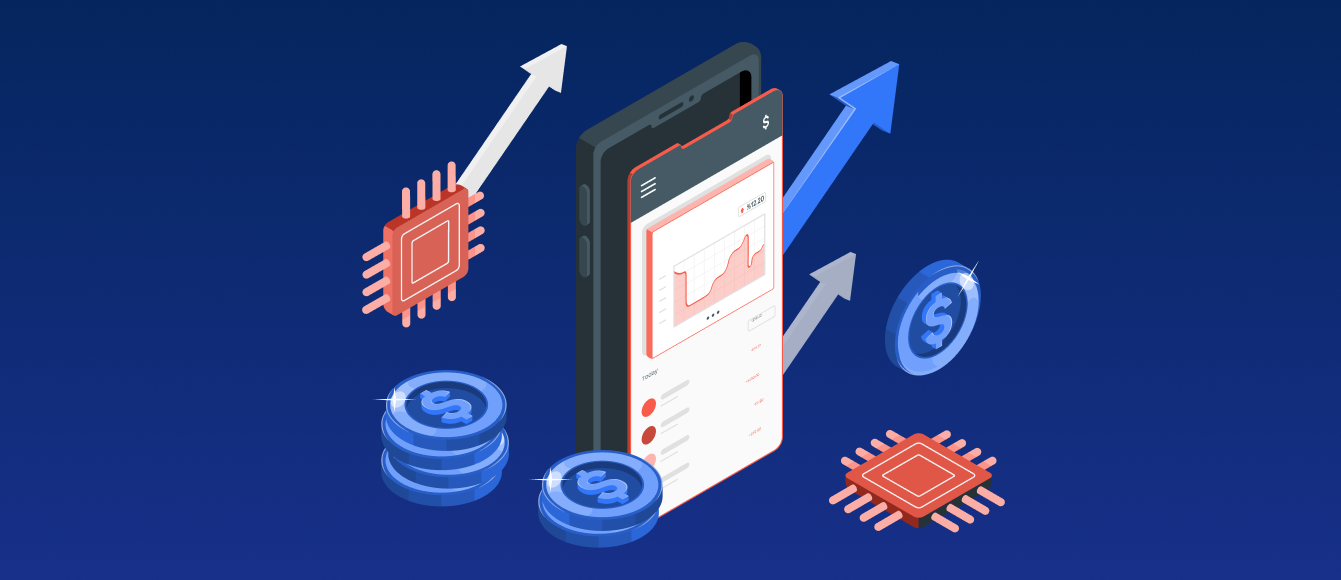AI-Powered Composable ERP: The Future of Agile Business Operations



Your ERP system is the backbone of your business, orchestrating everything from finance to supply chain. A staggering 95% of organizations have witnessed tangible enhancements in their operations through the adoption of the right ERP system. Implementing the appropriate ERP system has led to significant operational improvements for an impressive 95% of organizations. Now, imagine that backbone powered by AI, flexing effortlessly to meet rapidly changing business demands. The ERP market is surging toward $96 billion by 2032, and Gartner predicts that by 2028, 80% of ERP systems will be multimodal, integrating generative AI and predictive analytics, up from less than 10% in 2024.
Yet, only a handful have fully migrated all major ERP components (finance, manufacturing, supply chain, procurement, HCM, and warehousing) to multi-tenant SaaS cloud platforms. This gap stalls AI adoption, as legacy systems lack the data quality, accessibility, and compute for modern AI. You will need a flexible strategy to modernize and connect these functions together to realize the transformational productivity potential of AI.
Composable ERP
At Gartner, I coined the term “composable ERP” with my co-authors Tim Faith and Denis Torii. In our influential paper “The Future of ERP Is Composable”, we defined it as: “an adaptive technology strategy that enables the foundational administrative and operational digital capabilities for an enterprise to keep up with the pace of business change. This strategy delivers a core of composable applications and, as a service, software platforms that are highly configurable, interoperable, and flexible to adapt to future modern technology.” AI large language models (LLMs) turbocharge this strategy, synthesizing disparate business data across modern cloud systems without consolidation or heavy integration, slashing complexity. AI acts as the pivotal force, pushing enterprises toward complete cloud ERP adoption for unparalleled agility.
Read on to discover how to harness AI to transform your ERP strategy and stay ahead in a competitive market. This post dives into legacy ERP challenges, AI’s transformative role, its impact across ERP modules, a Rolls-Royce case study, expert guidance, and the AI-driven future.
The Challenge of Legacy ERP Systems in the AI Era
Legacy ERP systems are like aging factory machines: dependable but sluggish, unable to match AI’s speed. Why the delay? Heavy customization, complex infrastructure, and high costs stall progress. On-premises or single-tenant systems lack the GPUs and scalable databases needed for AI, especially LLMs, which demand real-time data processing.

Siloed data is a major roadblock. Mismatched supplier and financial records, for example, cripple AI-driven insights. A retailer I advised struggled with a 10-year-old ERP, unable to align inventory and sales data, costing millions in lost opportunities. Multi-tenant SaaS platforms, like SAP S/4HANA Cloud or Oracle Fusion Cloud ERP, provide AI-ready infrastructure with vendor-managed updates.
AI-Powered Composable ERP: Supercharging Agility with LLMs
Composable ERP, which I helped define at Gartner, is like a modular toolkit, letting businesses snap together functions (finance, supply chain, or otherwise) as needs evolve. AI large language models (LLMs) act like a universal adapter, unifying disparate data without costly standardization. For instance, SAP’s Joule equips users with near-instant, natural-language-driven insights, enabling query-based access to key metrics and charts across SAP business data.
LLM-based integration frameworks have demonstrated dramatic reductions in integration workload. In one study, developers achieved up to 60–80% less integration code, plus significant performance gains, highlighting how LLMs can substantially simplify ERP connectivity.
Major ERP vendors are accelerating investment in multi-tenant SaaS and embedded AI capabilities. SAP’s Joule and Oracle Fusion Cloud ERP are examples of platforms embedding AI copilots to streamline HR, finance, and supply chain processes. These approaches rely on scalable SaaS infrastructure, a critical departure from the rigidity of legacy on-premises systems.
However, modernization remains fraught with challenges. According to Gartner, by 2027, more than 70% of recently implemented ERP initiatives will fail to fully meet their original business case goals, with up to 25% failing catastrophically. Furthermore, 75% of ERP strategies are not strongly aligned with the overall business strategy, leading to confusion and disappointing results. This underscores the risk of rushing into ERP transformation without a documented, value-driven strategy.
Composable ERP, enhanced by AI, offers a way forward, delivering adaptive, cross-functional agility that traditional monolithic systems cannot match.
AI Applications Across ERP Modules
AI transforms composable ERP, delivering measurable wins across all major modules. Here’s how it reshapes key areas:
1. Finance
AI-powered predictive analytics now transforms cash flow forecasting, reducing forecasting errors by 20% to 50%, delivering real-time insights, and significantly minimizing manual effort. It integrates data from diverse systems such as ERP and CRM, enabling dynamic scenario planning, early risk detection, and smarter decision-making. These innovations empower finance teams to maintain liquidity and respond proactively to market shifts. Meanwhile, according to 2025 IBM study , 70% of executives believe that AI agents will empower business professionals to explore deeper analytics and optimize operations in real time by 2026. Such agentic AI is fast becoming a strategic cornerstone for organizational agility and future-ready decision-making.
Estimated Efficiency Gains: 30-50%
2. Supply Chain
AI is revolutionizing supply chain operations through strategic automation and smarter decision-making. For example, organizations that prioritize AI investments in their supply chain operations enjoy significant performance advantages: they report up to 61% higher revenue growth than their peers.
Additionally, a leading U.S. logistics operator harnessed an AI-powered system to optimize warehouse picking, achieving a remarkable 30% boost in workforce productivity while reducing operational inefficiencies.
Estimated Efficiency Gains: 40-70%
3. Manufacturing
AI optimizes production yields and predictive maintenance. According to McKinsey, approximately 64% of organizations reported cost reductions in manufacturing, reflecting the financial impact of AI deployment in operational environments.
Epicor’s Forrester TEI study highlights that manufacturers using Epicor Kinetic achieved a 1.9% improvement in gross margins, driven by stronger operational efficiency and streamlined workflows.
Estimated Efficiency Gains: 40-60%
4. Procurement
AI is reshaping procurement by automating sourcing and streamlining decision-making. According to IBM, organizations already use AI across procurement functions, 60% in predictive analytics, 56% in accounts payable, and 55% in purchase order management. Early adopters report strong outcomes, including 20% productivity gains, 14% higher efficiency, and 11% improved profitability. AI also enables faster operations, such as onboarding suppliers up to 10× faster and cutting pricing analysis from days to minutes, making procurement more agile and value-driven.
Estimated Efficiency Gains: 20-50%
5. HCM
AI is transforming human capital management by automating HR workflows and improving process efficiency. In SAP SuccessFactors, Joule serves as an AI copilot that enables conversational, natural-language interactions, simplifying tasks such as data lookups, navigation, and transactional operations within HR systems.
According to a Forrester TEI study on Epicor Kinetic, including HR personnel, organizations achieved a 20% productivity improvement by Year 3 through streamlined operations and reduced manual labor.
Estimated Efficiency Gains: 20-40%
6. Warehousing
Amazon now deploys more than 750,000 robots alongside employees, taking on repetitive tasks to improve efficiency and safety. Its new Sequoia system, launched in Houston, enables inventory to be stored 75% faster and reduces order processing times by up to 25%, enhancing delivery speed and accuracy. More broadly, EY reports a 30% productivity boost from AI-enabled warehouse optimization, underscoring how intelligent automation is reshaping supply chain performance.
Estimated Efficiency Gains: 40-75%

AI’s power lies in its ability to unify data, making composable ERP a powerhouse. Key benefits include:
- Automation: Speeds up invoicing, screening, and inventory tasks.
- Cost Savings: Cuts expenses across finance, procurement, and warehousing.
- Real-Time Insights: LLMs enable data-driven decisions without standardization.
- Scalability: Adapts to business growth and market changes.
Case Study: Rolls-Royce’s AI-Driven ERP Transformation
Rolls-Royce, a global leader in power systems with ~40,000 employees, was constrained by a heavily customized SAP R/3 system. The on-premises ERP, with its fragmented data and lack of real-time scalability, hindered AI adoption across the enterprise. In 2024, Rolls-Royce executed a full upgrade to Microsoft Dynamics 365 Finance and Supply Chain Management, a cloud-based, multi-tenant SaaS platform, replacing all legacy modules. This comprehensive migration, completed in 18 months despite data alignment challenges, unified finance, supply chain, manufacturing, and other modules into a composable ERP framework, eliminating legacy gaps and enabling seamless data flow for AI-driven insights via Microsoft’s AI Copilot and Azure AI services (Microsoft, 2025).
A standout use case was AI-powered predictive maintenance, which leveraged the fully integrated platform to cross-reference maintenance budgets (finance), spare parts availability (supply chain), and equipment health from real-time sensor data (manufacturing). “By embracing Microsoft AI and digital technologies, we will develop efficient and fully utilized smart factories,” said Kaveh Pourteymour, Group Chief Digital Information Officer at Rolls-Royce. This holistic approach prevented ~400 unplanned maintenance events annually, boosted machine usage by 30%, reduced fault resolution from days to near real-time, and cut supply chain costs by an estimated 20% (Microsoft, 2025). Unlike isolated AI improvements in single tasks, the full upgrade to Dynamics 365’s composable platform unlocked AI’s potential across the entire business, overcoming SAP R/3’s scalability and data fragmentation limitations to drive enterprise-wide transformation.
Your Expert Guide for the AI-Driven ERP Revolution
Shifting to AI-powered composable ERP is no small feat. Consultport’s platform connects you with ERP consultants who serve as a guide and specialize in AI and multi-tenant SaaS, tailoring solutions from major vendors like SAP, Oracle, Microsoft, Infor, and others. These experts tackle data integration and infrastructure challenges, ensuring access to AI features like SAP’s Joule or Microsoft’s AI Copilot. With only a handful of enterprises on multi-tenant SaaS, consultants bridge the gap to AI-driven competitiveness. Engage with us to craft an ERP strategy that delivers real value.
Future Outlook: AI as the Catalyst for Cloud ERP Adoption
AI is reshaping ERP, and the cloud is its foundation. Gartner warns that by 2027, 70% of organizations will lack AI-ready data, making cloud migration urgent. The ERP market, projected to hit $179.8 billion by 2029, will rely on AI for agility.

Future trends will redefine ERP:
- Generative AI: Natural-language interfaces simplify cross-module queries, empowering non-technical users.
- IoT Integration: AI merges IoT data with ERP for real-time insights, like predictive maintenance.
- No-Code Platforms: AI-driven no-code tools will be behind more than 65% of app development worldwide.
By 2027, AI integration will become standard in ERP systems, with most providers embedding gen-AI, intelligent agents, and automation within their platforms. Meanwhile, over 80% of ERP deployments are predicted to shift to the cloud, reinforcing the move toward modern, composable ERP architectures that enable agile, AI-driven enterprises.
AI-powered composable ERP is the engine of tomorrow’s agile enterprises. Consultport’s experts are ready to steer your business to the lead. Will your business lead or follow?
About Consultport
Consultport is a leading platform connecting businesses with top-tier consultants for digital transformation, including AI-powered ERP migrations. Our experts deliver tailored strategies to drive efficiency and competitiveness.
Discover our Consultant’s Expertise: Connect with Consultport’s ERP specialists to transform your business today.
on a weekly basis.


